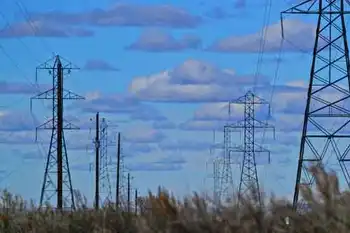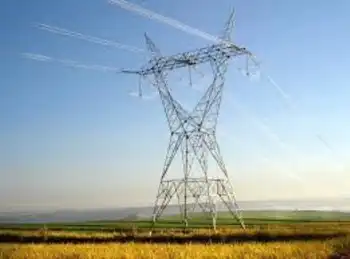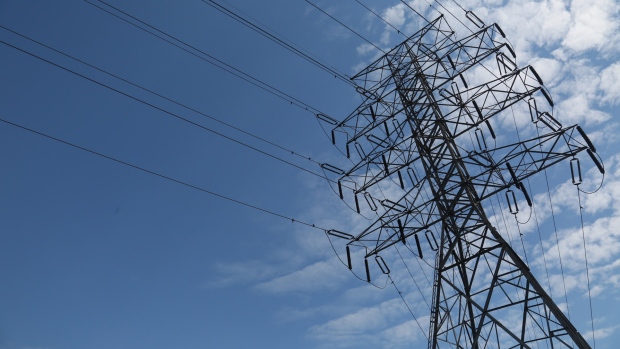Pro Deregulation States Consider California Disaster
LOS ANGELES -- -
LOS ANGELES -- California's unhappy foray into electricity deregulation has prompted a number of other states to put the brakes on their own plans to open up power markets to competition. Twenty-four states and the District of Columbia have enacted legislation in recent years opening competition in the retail sector that traditionally has been the exclusive territory of utility companies. Industry observers said the trend toward greater retail competition would likely continue, however, probably at a much slower pace as state lawmakers take stock of the mess that California has become. "To say it threw cold water on the process is probably extreme, but it would be fair to say the 'California problem' has caused some people to be a little more cautious," said James Owen, spokesman for the Edison Electric Institute, a Washington trade organization. "People are going to be gazing more deeply into their own process to make sure they don't run into problems like California." According to the Energy Information Administration, while about half the states enacted deregulation legislation, 18 others were still in the study phase and eight states were doing nothing at all to deregulate their markets. Surveys conducted this year by the EIA and EEI show that some states, including Alabama and Nevada, have suspended deregulation efforts due to instability in the electricity market and the lack of evidence proving that deregulation has any benefit for consumers. Nevada regulators went so far as to issue an order this month preventing the state's investor-owned utilities from selling off their power plants to private power generating companies. Much of California's troubles have been blamed on their 1996 deregulation plan, which was drafted at a time when power was extremely cheap and which pushed the state's three largest utilities to sell generating assets that were considered uneconomical. When demand outstripped the state's generating capacity, the utilities found themselves forced into the uncomfortable position of being the proverbial chronic buyer in a seller's market. This lesson is not lost on other states. "You need to be sure you don't deregulate yourself into a short market," said Owen. "It's a wicked position to be in." Pennsylvania Gov. Tom Ridge recently said that the ample generation capacity in his state had made deregulation a success, with rates running under the national average after holding at 15 percent above average before retail competition began in 2000. Ridge told an industry audience this month that California's problem was a flawed and incomplete deregulation plan that actually hamstrung competition to the point that utilities were forced to buy more power on the short-term and often expensive spot market and power plant construction was restricted by regulations. "Californians are going through a difficult time now, and we all need to be concerned with helping them solve their energy challenge," Ridge said. "But we cannot allow those solutions to condemn deregulation. The marketplace didn't abandon California; California abandoned the marketplace." Another major source of trouble for California's utilities has been laws capping retail rates paid by consumers. However, bitter experience with uncapped rates in San Diego saw utility bills triple in a matter of months last summer and state lawmakers are not anxious to expose their constituents to such Draconian sticker shock. The protection of consumers is also evident in other states where rates have been capped by state legislatures as well -- including Illinois, Michigan, Maryland, New Hampshire, Ohio and Washington, D.C. The power industry has largely refused to publicly criticize California's rate freeze. However the consumer group Public Citizen maintains that deregulation by nature presents a risk to the public, and they scoffed at the selling point that deregulation and free competition will lower power bills. "By both exerting market power and manipulating the next day's spot market for electricity, these suppliers keep electricity supplies low and prices high, for instance by employing unscheduled power plant closings," the organization said this month in a release. The California situation, coupled with a looming nationwide power shortage, however, might actually serve to speed up deregulation -- particularly in terms of environmental and market access laws -- as states seek private sector investment in new power plants. "It could strengthen the hand of those who want less regulation," speculated Robert Hormats, vice chairman of Goldman Sachs (International). "When things are going great, people pay no attention to them. Now, we have to make a lot of tough choices." Electricity deregulation was never a simple proposition. However, now that tough choices need to be made, and the consequences of rushing in unprepared can be seen in California, state lawmakers are taking the slow and cautious route to free markets. Source: United Press International
Related News

The German economy used to be the envy of the world. What happened?
BERLIN - Germany went from envy of the world to the worst-performing major developed economy. What happened?
For most of this century, Germany racked up one economic success after another, dominating global markets for high-end products like luxury cars and industrial machinery, selling so much to the rest of the world that half the economy ran on exports.
Jobs were plentiful, the government’s financial coffers grew as other European countries drowned in debt, and books were written about what other countries could learn from Germany.
No longer. Now, Germany is the world’s worst-performing major developed economy, with both the International Monetary Fund and…




